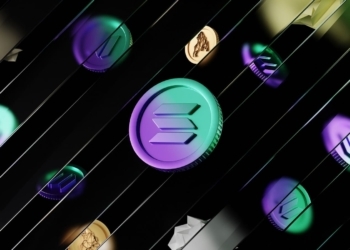What is a seed phrase?
A recovery phrase, also known as a seed phrase, is a collection of unrelated words formed by a cryptocurrency wallet that enables users to access the cryptocurrency it holds.
It can be considered a cryptographic version of a password manager, and the recovery phrase is remarkably similar to the master password. As long as the recovery phrase is available, it allows access to all of the cryptocurrency linked with the wallet that issued the phrase, even if it is deleted or lost.
In the event that a user forgets their password, a seed phrase helps them restore their cryptocurrency wallet. One could compare the seed phrase to the master key of a cryptographic wallet.
For instance, if a hardware wallet is misplaced or erased from a computer, it can easily generate a new wallet and use the seed phrase, which will recover cryptocurrencies held in the wallet.
What does a seed word look like?
A seed phrase could be confusing. How does it look likely? How it is created? The seed phrase is automatically generated by a cryptocurrency wallet; the user cannot alter it.
A list of 2048 words is being used to generate the words. What length is a seed phrase then? A long string of a number of random words forms a seed phrase.
Unlike if the seed phrase consisted of large numbers or special characters, the words on a seed phrase are simplified to make them easier for the user to remember. A 12- to 24-word recovery phrase can include terms like “energy,” “road,” or “open.”
These randomly generated words do not use word pairs like “man” and “men” within the same seed phrase in order to prevent mistakes.

These terms were first used in the 2013 Bitcoin Improvement Proposal (BIP)-39, which also set a standard for deterministic wallets. A fictional 12-word seed phrase is as follows: Humankind, Toddler, Planet, Loose, Typical, Anxiety, Difficult, Happy, Never, Alternative, Regret.
All of the private keys linked to a deterministic wallet are managed by a seed phrase. The BIP-39 proposal makes the most prominent wallets cross-compatible, enabling users to load the recovery phrase to a new BIP-39-compatible wallet to access the funds in the event of a loss or if they wish to transfer wallets.
Also Read: 10 WAYS TO SECURE YOUR BITCOIN AND CRYPTO WALLET
Recovery phrase vs. private key
The recovery phrase and private key are distinct even though they are connected. Both of them are used to safeguard cryptocurrency wallets.
The password for a crypto wallet recovery is a recovery phrase. In the case that the owner of a crypto wallet forgets their password, they can retrieve it using the recovery phrase. On the other hand, a private key is used to identify a blockchain address, safeguarding transactions. By demonstrating ownership, a private key is used in cryptocurrency transactions.
A recovery phrase can be considered as the user’s master key to all of their cryptocurrency accounts. All of the private keys that were originally saved in the wallet are accessible through these words. Having total control over digital assets is the goal.
With such a phrase, users are still capable of accessing blockchain assets even though users lose or damage a physical hardware device. But how does a seed recovery phrase operate, though?
Simply explained, users have the option of using any wallet to access their cryptocurrency accounts; it’s like having a charger for any phone model. Imagine the chaos if each wallet required a distinct structure for the recovery phrase.
Can anyone hack a seed phrase?

For many cryptocurrency owners, losing their funds is a nightmare in the world of cryptocurrencies. The crypto funds cannot be retrieved if the attacker manages to steal the seed phrase.
Crypto heists are striving relentlessly to enjoy the benefits of their unplanted seeds in the digital world. As previously said, a seed phrase serves as the master key to access a crypto wallet, therefore damage in the wrong hands is unavoidable.
However, since a seed phrase includes a large number of words, it is challenging to hack. Phishing is typically used to gain access to a seed phrase. Scammers will send emails acting as customer support asking for a seed phrase or private key as one method of obtaining one.
When they have the seed phrase, they can access a crypto wallet and withdraw everything from it. Always keep a seed phrase to yourself and never disclose it to anyone else.
Also Read: BEST CRYPTO EXCHANGE WALLETS OF 2022
What happens if a seed phrase is misplaced?
The worst-case situation for a bitcoin owner is losing a seed phrase. A wallet seed cannot be recovered if it is misplaced or forgotten.
Giving out your seed phrase or submitting it on a website serves no useful purpose because it increases the risk of losing the wallet’s crypto holdings. A recovery phrase should also not be written on a refrigerator. It can assist in preventing theft.
A seed phrase should be documented and stored securely as this is the most effective method for ensuring its security. Additionally, it’s a good idea to retain a copy of the seed phrase in an area where it won’t be damaged by any external force. Can anyone, however, decode a seed phrase?
The fact that a seed phrase typically comprises 12 to 24 words and that there is no probability of correctly guessing all of them contributes to the difficulty of remembering it.
How to protect your seed phrase
It is advised to constantly make sure a crypto seed phrase is protected because it might cause damage in the wrong hands. The following advice will help you make sure your seed phrase is safe.
Don’t ever disclose a recovery phrase to anybody else. It’s crucial to never share a seed with anyone else. Why? Because if a third party learns the recovery phrase, they will have access to and thus control over all the cryptocurrency funds stored in the wallet.
It should be written down and kept in a safe place. Although it’s the oldest method of storing a recovery phrase, it’s still a very suitable strategy. Either handwriting it down or printing it out are alternatives. Your copy of the seed phrase should be kept in a fireproof and waterproof safe.
Password managers are encrypted digital vaults that can be used to store sensitive data like usernames, passwords, and recovery phrases. Instead of having to remember dozens or even hundreds of distinct passwords, a user simply needs to remember one (the password for the password manager account). 1password and Lastpass are two examples of password managers.
Another benefit of storing a recovery phrase in a password manager is heightened security. Users can build an even stronger and more secure backup by adding a secondary password, commonly known as a passphrase.












Discussion about this post